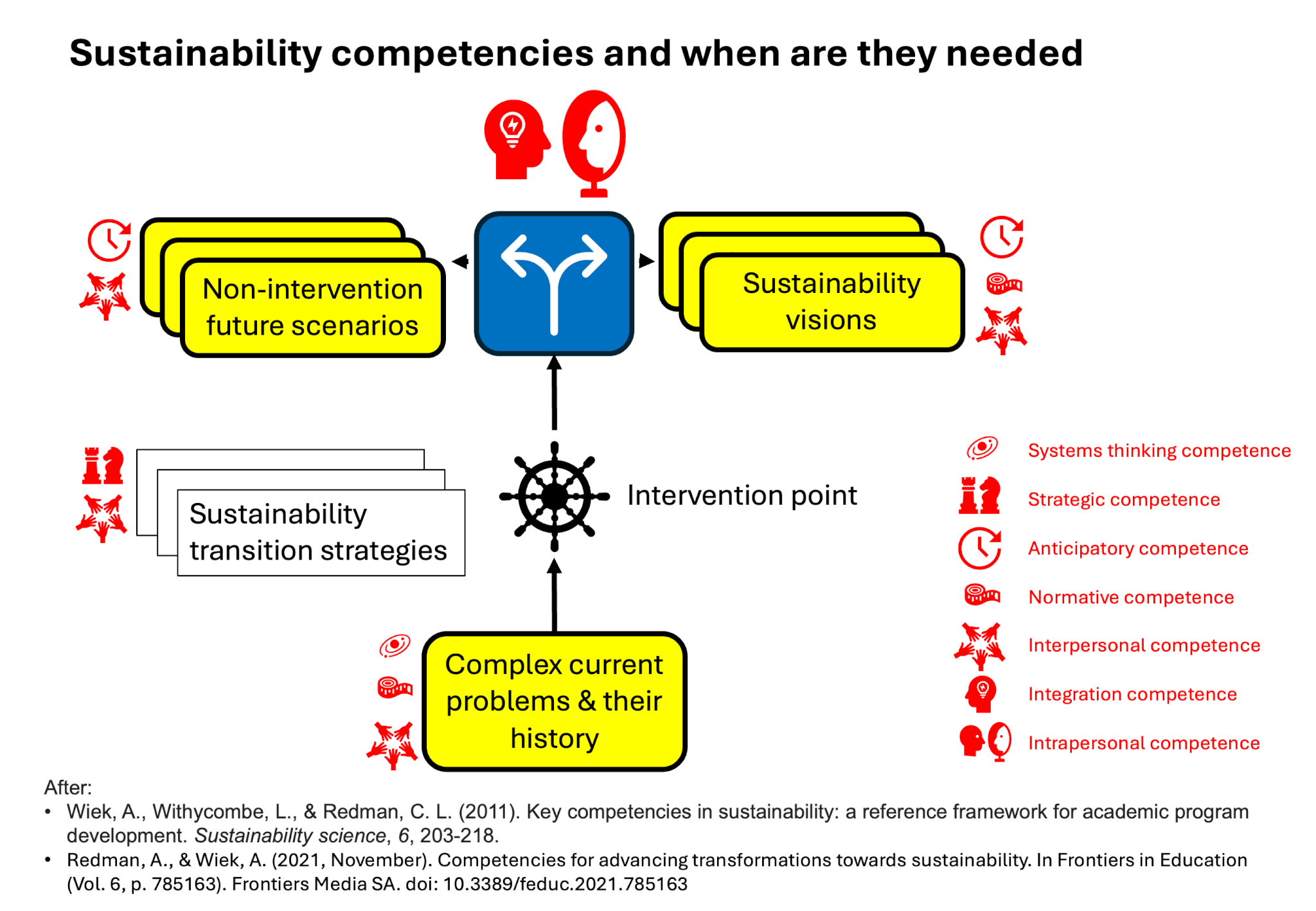
Sustainability competences, what they mean and when we need them (loosely after Wiek, Redman, and colleagues)
I like using the Redman & Wiek (2021) framework for sustainability competencies that shows sustainability competencies relating to each other as well as to disciplinary content and generic competencies. But in an article they wrote 10 years before (Wiek et al., 2011), they show a graphic that I have re-imagined here, and where I included integration & intrapersonal competences, that only made it into their framework later but that are needed throughout, because obviously all competences need to play together, and this needs to happen in a way that does not lead into burnout. They are also included in a version of the Wiek et al., (2011) framework that Brundiers et al. (2021) published.
I think a visualisation like this one of where the different sustainability competencies become relevant in any work towards a sustainable future can be very helpful in curriculum planning when looking at how to weave sustainability competencies through all activities and assessment!
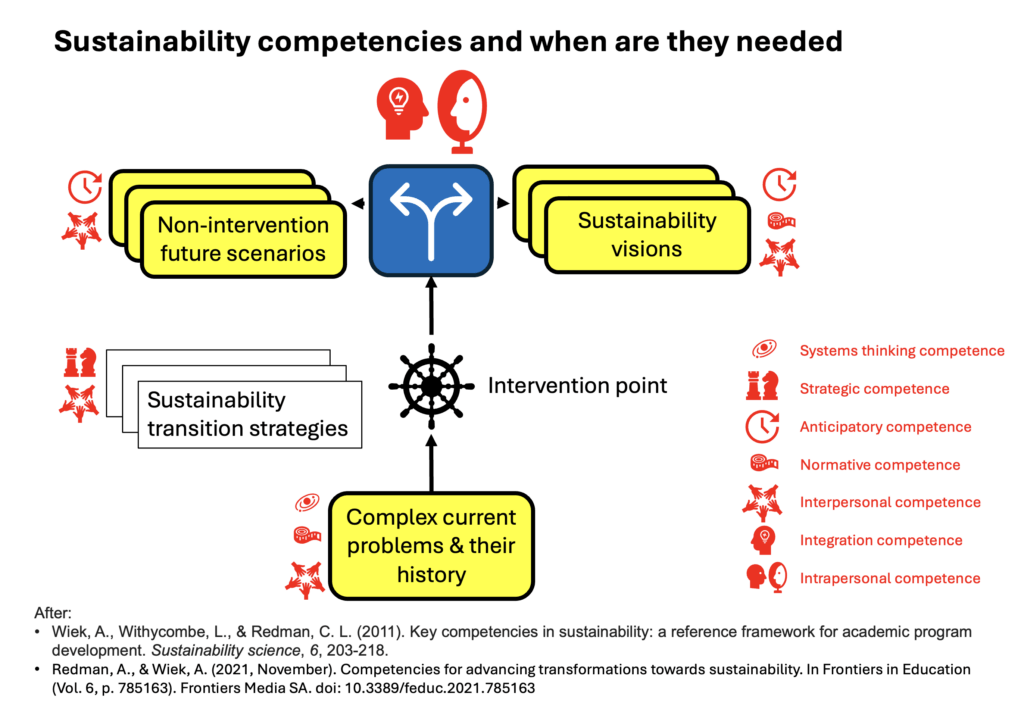
This is probably not the final version of how I’ll be using it (why was my first impulse to make it look like road signs, and the best fix I could come up with was to include a steering wheel from a ship, not a car?).
One chapter that is very helpful to understand what sustainability competencies could look like in practice is Wiek et al. (2015), where they operationalise competencies in higher education for sustainable development. Below, I am sharing slides with condensed versions of their operationalisations. I will have to do some more work before using this in my workshops, but I find it quite helpful already to at least have one slide per competence (but note: intrapersonal competence is not operationalised in that article, so that one is still missing here!).
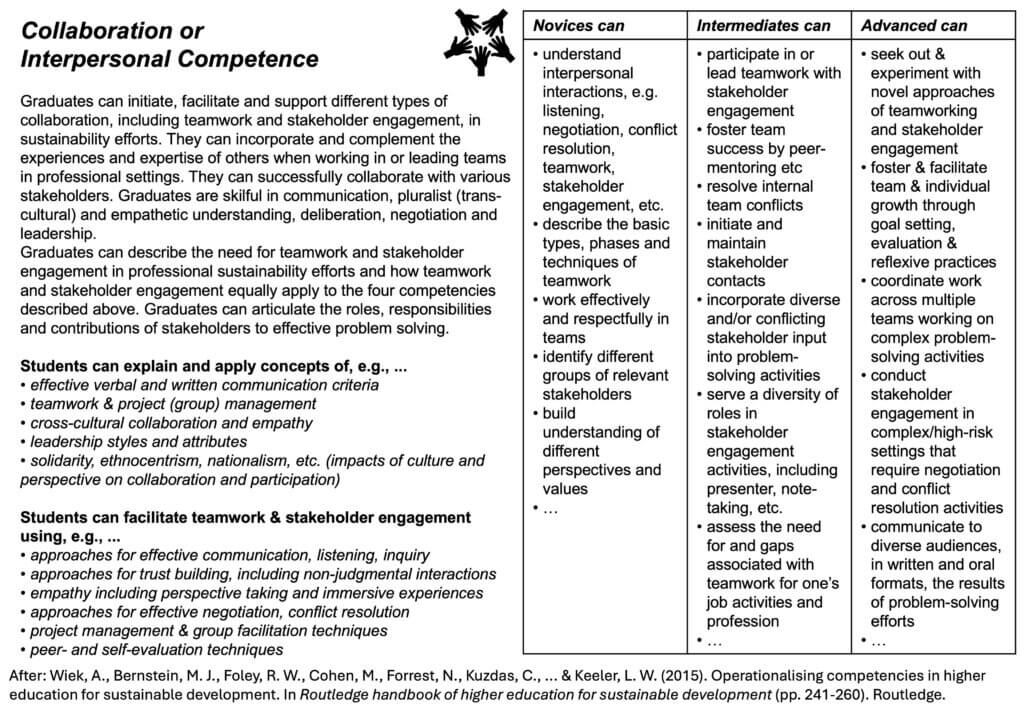
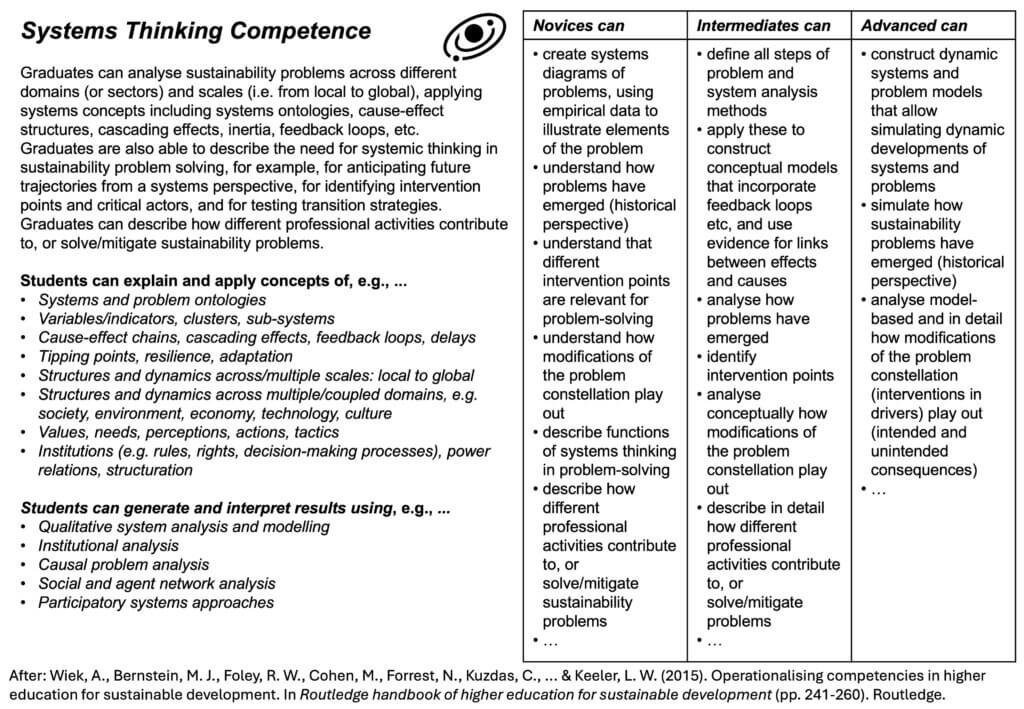
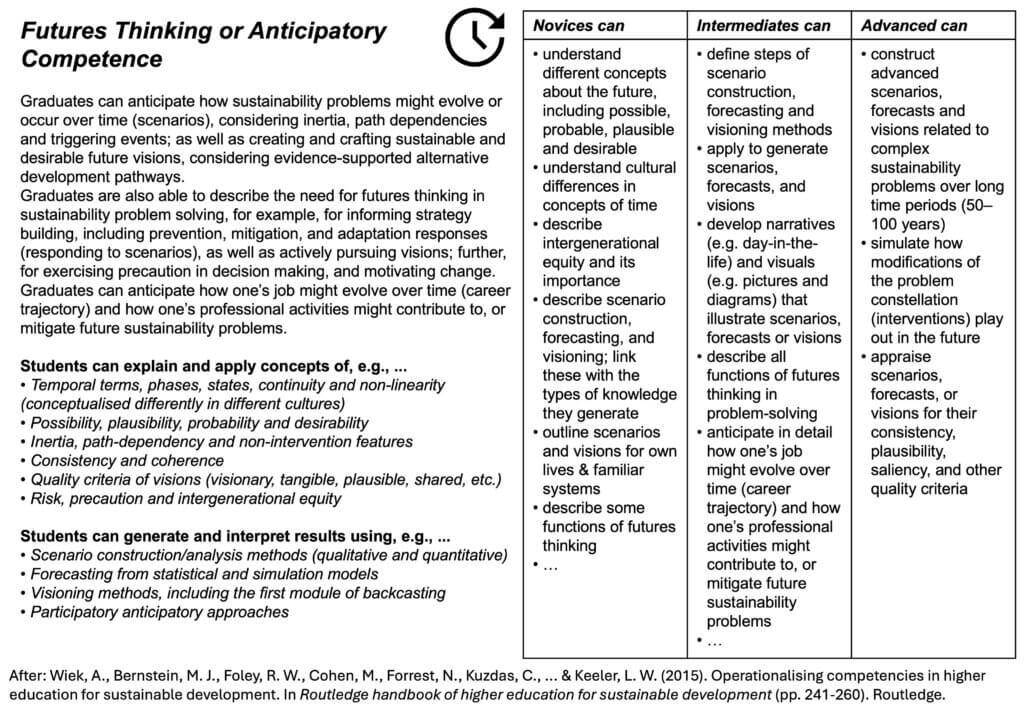
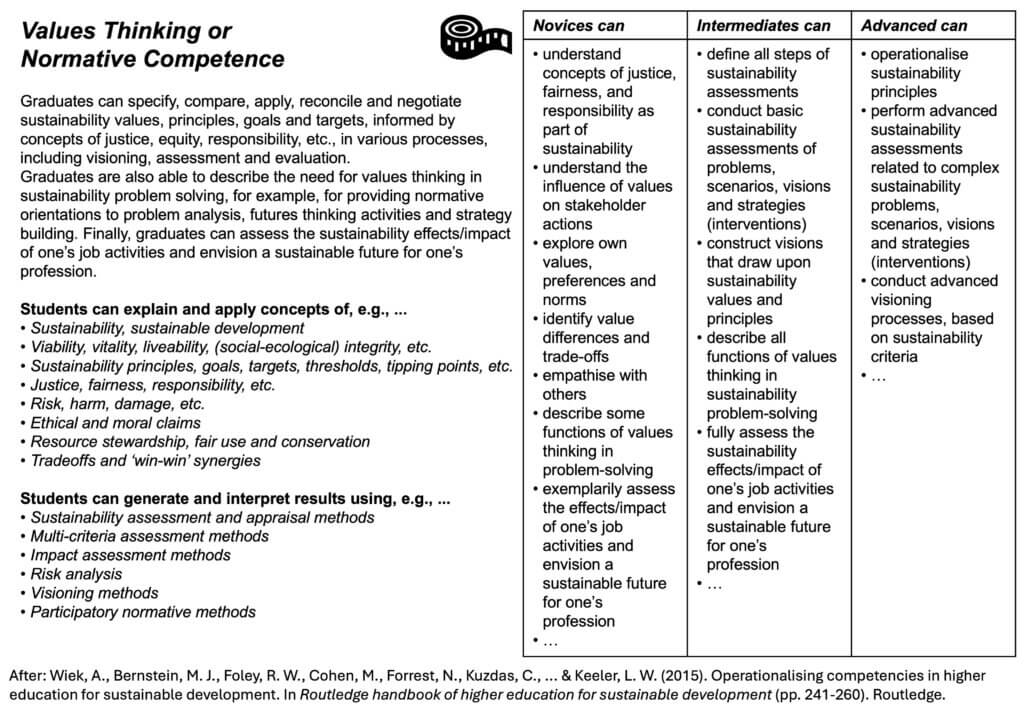
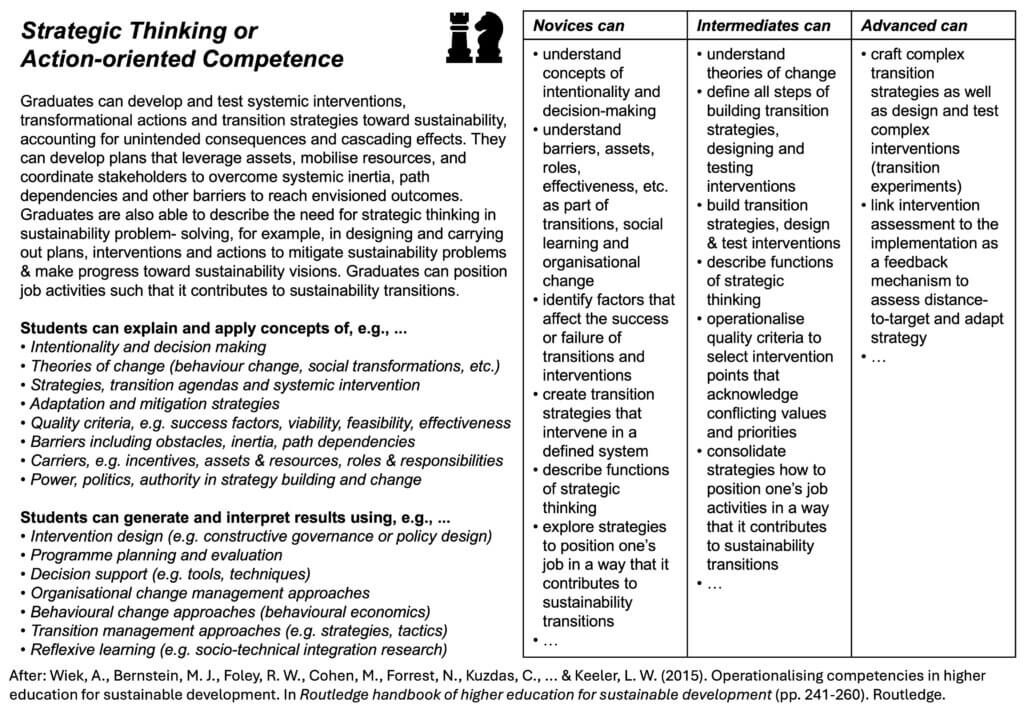
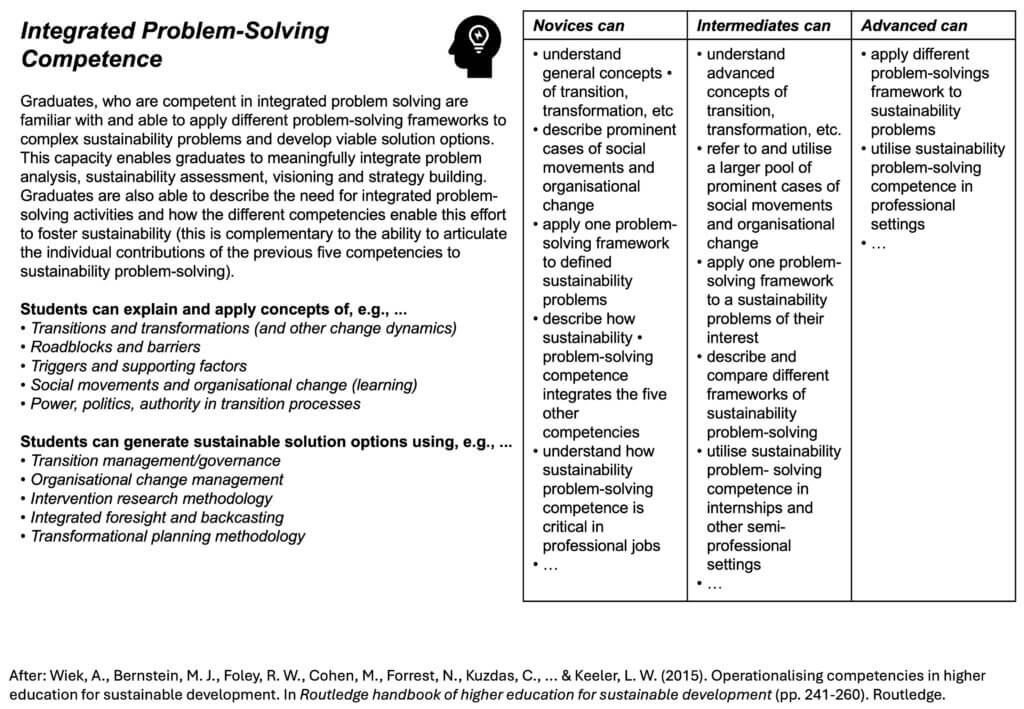
I find it quite scary to look at these competencies. I would not say that I am proficient on all (or even most) of them… In their 2011 article, Wiek et al. argue that maybe it is not necessary that every individual masters all competencies on the highest level, but that instead we should create teams with “distributed expertise”. But from a curriculum planning standpoint, that does not help a lot. Do we just hope that other study programs address the competencies that we aren’t addressing? Or do we go for distributed expertise within the graduates of one program? Neither sounds very appealing to me…
Brundiers, K., Barth, M., Cebrián, G., Cohen, M., Diaz, L., Doucette-Remington, S., … & Zint, M. (2021). Key competencies in sustainability in higher education—toward an agreed-upon reference framework. Sustainability Science, 16, 13-29.
Redman, A., & Wiek, A. (2021, November). Competencies for advancing transformations towards sustainability. In Frontiers in Education (Vol. 6, p. 785163). Frontiers Media SA. doi: 10.3389/feduc.2021.785163
Wiek, A., Bernstein, M. J., Foley, R. W., Cohen, M., Forrest, N., Kuzdas, C., … & Keeler, L. W. (2015). Operationalising competencies in higher education for sustainable development. In Routledge handbook of higher education for sustainable development (pp. 241-260). Routledge.
Wiek, A., Withycombe, L., & Redman, C. L. (2011). Key competencies in sustainability: a reference framework for academic program development. Sustainability science, 6, 203-218.
Thinking about assessing sustainability competencies - Adventures in Oceanography and Teaching says:
[…] Basic, integrated, and advanced. This can be really helpful (even though, looking back at the operationalised competencies in Wiek et al. (2015), having each competency operationalised through only one to two sentences each seems very […]
Learning from history. Currently reading "Education and Learning for Sustainable Futures: 50 Years of Learning for Environment and Change" (Macintyre, Tilbury, Wals; 2024) - Adventures in Oceanography and Teaching says:
[…] even really what skills learners will need to have in the future, so the focus is shifting towards key competencies for sustainability (that, I think, are relevant for our future even if sustainability wasn’t a concern), as well […]
Attempting to Assess Key Competencies in Sustainability - Adventures in Oceanography and Teaching says:
[…] But what do those competencies entail in detail? Some of them were operationalised for higher education in Wiek et al. (2015), which is very helpful (and also a little scary because there is so much that we should be able to do!) Below, I am sharing one slide on collaboration (or interpersonal competence) because it feels like the one competence that we might be most familiar with, both when it comes to our own skills and teaching it. I share similar slides for the other competencies here. […]
Inner development and mindfulness at university (reading Libertson, 2023) - Adventures in Oceanography and Teaching says:
[…] I wrote recently when discussing frameworks for sustainability competencies, intrapersonal competencies have only recently been added as integral parts to the common […]